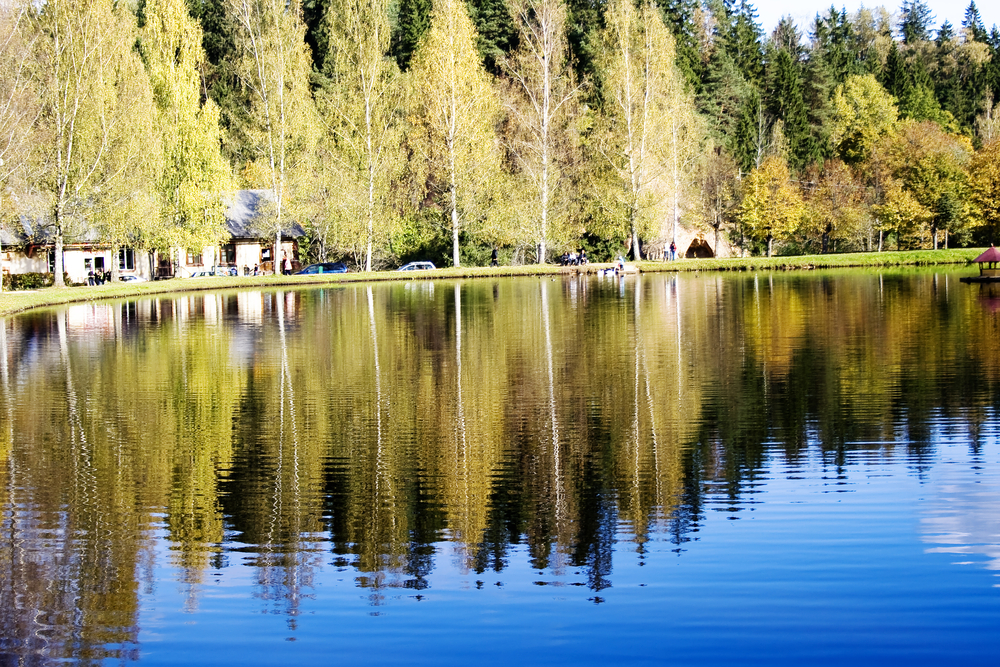Living by a lake can be a beautiful luxury to enjoy, but it can also be a huge chore. Keeping a lake clean can be difficult and some of the products used can sound intimidating and harmful. Specifically, you might be wondering if aquatic herbicides are safe for your lake.
With all the chemicals in today’s products and the accessibility of potentially harmful herbicides, your worries are understandable. The wildlife that lives in an aquatic environment is very fragile and unfortunately, most regular herbicides will easily upset it.
The good news is that aquatic herbicides are designed to keep your body of water clean and help with lake maintenance without upsetting the delicate balance of biodiversity.
Are Aquatic Herbicides Safe?
Don’t let your worries about aquatic herbicides prevent you from taking care of your lake. In fact, unlike regular herbicides or weed killers, aquatic herbicides are much, much safer. Any professional service that handles aquatic herbicides is very familiar with their use and how to safely and efficiently distribute them.
While regular herbicides have loose restrictions and are easy to get ahold of at any local supermarket or hardware store, aquatic herbicides are quite a bit more difficult to find. This is largely in part due to the fact that the manufacturers of aquatic herbicides have to follow much stricter and more regulations when it comes to making them.
Getting a product certified by the EPA (Environmental Protection Agency) is not an easy feat. With a heavy focus on keeping herbicides safe for the local plants and animals, the EPA ensures that any aquatic herbicide product has to meet specific standards.
Most aquatic herbicides go through years of scientific study and testing before even being presented to the EPA for certification. Even after all the work put into a product, if the chances of it harming humans, animals, or the environment is higher than one in a million chance, the herbicide cannot be used.
Who Can Administer Aquatic Herbicides?
Another drastically different aspect between regular herbicides and aquatic herbicides is that only licensed professionals can apply aquatic herbicides. While anyone can purchase a regular weed killer and apply however much they want and wherever they want, only certified and trained professionals are allowed to administer aquatic herbicides.
This, along with the strict regulations by the EPA, helps ensure the environment isn’t harmed. Professionals know how much of the herbicide to use depending on the size of your body of water and the chances of them accidentally using too much and harming the environment are incredibly low.
Risks Involved
Despite going through rigorous tests and having to meet very specific standards, there are still some points to note when using aquatic herbicides.
When a body of water has very low oxygen already and then a bunch of algae or plants are killed because of the herbicide treatment, the sudden change in water quality can be conducive for fish to suffocate and die. This does not necessarily indicate that the herbicides themselves were harmful or administered incorrectly.
Overall, the risks are very low when using aquatic herbicides administered by a trained and certified professional. Always be sure to double check licensing on the professionals coming to service your lake or pond and if you have any worries or doubts, contact the company directly for clearer answers.
Conclusion
Aquatic herbicides are not inherently dangerous or harmful to humans or animals. They are heavily regulated and monitored to ensure no harm comes to the environment where they are used. Professionals know the best way to administer these herbicides and can advise you on any safety recommendations such as not swimming for a few days or avoiding using the water for drinking or cooking. In general though, you shouldn’t have any problems with aquatic herbicides.

